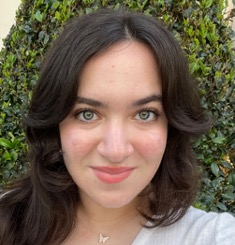Ruchi Acharya's Blog, page 8
February 5, 2024
Exploring Christopher Bowen's Unique Storytelling and Midwestern Flair

I'm thrilled to offer you my conversation with Christopher Bowen in this blog. Brace yourself for a journey through Christopher's unique perspective and unparalleled eloquence. In the realm of words, Christopher Bowen stands as a maestro, framing verses that dive into the profound depths of our existence.
This blog is more than just a read; it's an odyssey in search of motivation, ingenuity, and the boundless expanses of the human spirit. Whether you're a budding writer or someone aspiring to leave a distinctive mark through words, this blog vows to fuel your transition.
So, let Christopher Bowen's wisdom propel you towards new heights of inspiration and make your mark in the world.
Christopher Bowen: Well Shreya, I think storytelling is a natural role for most people. Most people want to tell their story, or some version of it, even if it is just a memory. Very few ever really pursue it. I’m reminded of the quote from science fiction and fantasy writer Ursula K. Le Guin: “The creative adult is a child who has survived.”
Christopher Bowen: What makes the Midwest so enticing to me as a writer is its natural blue-collar and Rust Belt mentality. While these are elements you find throughout the Midwest, they are often expressed in my writing with a sort of brutal honesty. My fiction can be disheartening and depressing, but it looks for the opportunity in the wake of heartache and loss—for growth and change. The characters in my fiction are down-and-out, forgotten people, but often, through compromise and resolve, they are poetic, if not graceful.
Christopher Bowen: Repeatedly, it can be sadness. I was once diagnosed with bipolar disorder a long, long time ago, and although I’ve taken the same medication for, God knows, twenty years, my stories tend to have an impact on people that way. While I wrote and published a novella on my experience with it in the hospital, that book may be the singular achievement I feel the most proud of lately.
Christopher Bowen: Shorter forms hit harder, you know? I think the shorter the form, the harder the gut punch. As a writer, you want your stories to sink in with your readers. Some are slow burns. They build up, they use repetition, and then they just ‘pow’ it on you. There are a handful of flash fiction writers I have had the luck and pleasure of knowing and working with, too. While the form has consistently gotten more popular, the gut punch in a story is the best way I can describe the emotional effect.
Christopher Bowen: In most of my fiction, if not non-fiction, I want people to know the gravity of the times we are living in and that they can get up and change. I hope I connect with readers on the page at the moment, meeting them sometimes even in the first person while telling a story. My own experiences include commutes through broken-down but still functioning urban factories. Rural farm roads with horse-drawn carriages. These are elements and themes of the Midwestern U.S. Much like our winters, there is a hard-earned resilience to that.
Christopher Bowen: That can be difficult. There have been several times I have solicited writer friends for feedback, sometimes on manuscripts, essays, etc. I think this is more of a question of: Are you, as an author, comfortable sacrificing for the reader’s empathy? In the end, it is the understanding of the reader that you want to help create that artistic vision. At least in my own opinion.
I have shared a snippet of my interesting conversation with Christopher Bowen. While we touched on a myriad of topics, unfortunately, not all of them could make it into this blog. However, Christopher has assured us of his availability for more insightful discussions. His willingness to share his wisdom and experiences adds an exciting layer to our ongoing dialogue. Stay tuned for more captivating conversations down the road!
ABOUT THE BLOGGER
SHREYA MISHRA

Meet Shreya, the aspiring doctor and content creator, who seamlessly weaves life-saving skills with mood-lifting narratives, creating a healing symphony through both the art of medicine and the magic of words.
January 29, 2024
Harnessing the Power of Social Media for Writers: Tips for Effective Promotion

The emergence of digital platforms such as social media, blogs, and podcasts has significantly transformed the landscape of the publishing industry. These platforms have not only introduced innovative marketing strategies but have also fostered communities united by shared interests, sparking conversations around what engages readers with authors, bookstores, and literary events. In this digital era, self-publishers are presented with an unparalleled opportunity to leverage these tools for a triumphant book launch and promotional campaign, independent of traditional publishing support.
Drawing from my experience in collaborating with independent publishers and authors committed to a cause in organizing online events, I've identified several key strategies that are universally applicable across all publishing genres and levels, particularly for authors navigating the industry solo or without a dedicated marketing team. Below are four essential tips to effectively self-market your literary work:

Many modern authors create an active social media presence for visibility and to engage with fans. In recent years, this has become a primary source for audiences to stay updated on news and connect with the person behind the art. Therefore, a cultivated social media network should not be underestimated for its marketing power amid a generation of consumers that look to thought leaders’ social media to sway their buying decisions and overall engagement where themes of social justice, self-improvement and other nonfiction categories are involved. This goes beyond advertisements and websites by providing timely personal tidbits of information that organically entice the audience, confirming the notion that access to talent is what fans are most interested in.
Beyond simply being present on social media, it's crucial for self-publishers to actively engage in broader discussions. Platforms like Instagram, Twitter, Facebook, and increasingly TikTok, have become indispensable for anyone looking to self-promote. Additionally, blogs and podcasts offer avenues for deeper engagement through long-form content. Leveraging platforms that support interactive discussions can prove highly advantageous, particularly if the book tackles topics that resonate with readers. Encouraging and participating in these dialogues not only generates excitement but also expands the author's visibility.

Should the expense of organizing a book tour through an agency be prohibitive, authors still have viable avenues to engage with their audience and meet promotional objectives. Self-publishers should consider platforms that offer the capability to connect with fans virtually, either for free or at a minimal cost for setup and hosting. This approach ensures accessibility to the author for all fans, circumventing the logistical and financial constraints associated with physical events.
Creating content that resonates with your audience and incorporating opportunities for direct interaction during promotional periods are essential strategies. This could manifest as incentive programs, such as offering special access to the author or exclusive content in exchange for purchasing the book or writing a review. Additionally, identifying and monitoring key metrics of engagement is crucial. These metrics could include the duration of interactions with fans, the number of participants in engagements, the value derived from promotional efforts, or the cost-effectiveness of using digital platforms compared to traditional in-store events. Although these metrics may differ for each self-publisher, tracking them is vital for evaluating the campaign's effectiveness and for refining future strategies.
To execute a thriving self-promotion campaign, independent creators can harness online resources to meet their business goals, extending beyond just the publishing sector. The influence of social media has revolutionized how individuals across various fields can attain their objectives. This autonomy opens up enhanced prospects for revenue generation, eliminating the dependency on agencies and paving fresh paths for self-publishers to generate income and venture into new opportunities.
ABOUT THE BLOGGER

NADELINA AGOPOGLU
Nadelina Agopoglu, American Armenian, is a lifelong literature lover. Nadelina firmly believes in unconditionally supporting creatives in their production, evident through her work at Wingless Dreamer Publisher, a company dedicated to empowering and promoting creative individuals. With a profound love and fondness of Armenian and Women’s Literature, Nadelina explores the intricacies of these distinguished literary domains. Among her favorite literary pieces are In the Dreamhouse by Carmen Maria Macchado and The Fool by Raffi. Nadelina Agopoglu has been preparing her debut in the literary world, having written multiple short stories and a poetry collection over the span of a few years. During her time writing, she has undertaken many opportunities in order to bring her works to their highest potential by working with other creatives and by constantly consuming various pieces of literary work. She advocates for the accessibility of creative production, and strongly believes that everyone should be able to follow their passions and have their work recognized.
January 15, 2024
PROFOUND DOUBT TO NEW CERTAINTIES: WRITING IN THE ABSURD WORLD

I wanted to write something today, and my intentions were purely commercial.
I thought to myself yesterday, I’ll brainstorm on the train, and I did it. I thought, and thought — but the more I meditated on every topic, the more it felt like my brain was chewing on my thoughts and spitting them back out as a ghost of what they were. No topic seemed good enough to me. And there were some good ones, I believe: there was Cafe Culture in the Neoclassical Era and how it influenced the dominant literature of the period, or there was Why Critique is of utmost importance to writers, or there was —

Well, there were many things that I could have spun into a blog post, because, it’s not difficult to dissociate yourself from your writing and slap the label of “commercial writing” onto it. I believe a lot of writers will identify with this thought. And I have had several conversations with several writers — writers who write majorly for work — that have told me similar things. However, lately, I’ve been thinking of ways to stop putting the tape of commercial writing on my metaphorical leaking water tank of I think I’m writing something I don’t identify with.
Every writer starts out with a dream, perhaps a pipe dream, but a dream nonetheless. It’s that initial confidence that your words have meaning, importance — that your writing is a most peculiar, inimitable piece filled with idiosyncrasies that belong solely to you — that gives birth to the writer in a person. However, that dream is very soon crushed. The writer goes into the “real world”, the one where everyone is poised, ready to strike with newer, unique-er versions of their words.
This is when writing can — and, in my opinion, should — become incredibly personal.

The moment of the acceptance of the absurd (borrowing the term from Immanuel Kant and Albert Camus) is when the writer’s words stop. The writer must acknowledge the absurd, and continue to rebel against it. The best form of rebellion against the absurd is probably sheer individualism. There is nothing that can be more rebellious in the absurd world than simply being yourself. Camus also talks about the agent (he means man, but for our concern, we take it to mean “writer”) considering themselves the creator of all the opportunities and paths they create for themselves. Taking control, and asserting agency, is the best way to stop the downhill slope of dissociating yourself from your writing.
Sometimes, I, too, find writing incredibly difficult. I’m sure many people can relate to this. I’ve had a few writers tell me that writing comes as easy to them as breathing, and — well, good for them! But not me. I think in such jumbled threads of barely there thoughts that sometimes, trying to grasp a coherent sentence is like wading through thick fog, never knowing what you’ll find in front of you. This, I think, is also part of the absurd.
The pointlessness of the outside world has conditioned writers into believing in the pointlessness of their thoughts as well. Thinking has become utilitarian — “think good thoughts” is equivalent to “think useful thoughts”. This utilitarianism, however, is flawed, especially in the world of commercial writing. Because this utility — this usefulness — doesn’t necessarily imply the usefulness to the writer, but rather the usefulness to the entity they are writing for.
As AI invades the spaces of writing, art, and other creative areas, the possibility of human creativity starts to look bleak. And is there anything more absurd than machines who can write everything a writer can write? Probably not. It’s a tool that has singlehandedly asserted the pointlessness of striving for fabricated uniqueness in the twenty-first-century world. In a world where the extraordinary has become the new ordinary, and human writers are competing for the “unique” factor by going above and beyond, AI has become the new extraordinary. It can meet word counts, adjust creativity levels, write research papers, essays, poems, draw the most exquisite paintings, all in a matter of seconds. What took me days of agonising over would take a computer probably three seconds to generate.
So, screw being unique. The most unique you can be is yourself — utterly, and without remorse.
I suppose, as the new year begins, this is as much a motivational note to myself as it is to the readers: the next time you think of tagging your writing as “commercial” and tossing it onto the convertor belt of orphaned works, don’t.

ABOUT THE BLOGGER

Mrunal Rajadhyaksha is a student currently studying English Literature in Ruia College. She is passionate about reading, art and history, and the sea. She plays the guitar as a hobby.
January 7, 2024
Unveiling Mr. William David's Journey from Precision to Verses

William E. David
I am presenting to you my dialogue with Mr. William David in this blog. Every response echoes Mr. William's originality. You will experience the dialogue in its truest form! I enjoyed interviewing and later putting the conversation with this extraordinary individual in the form of a blog post.
In this blog, meet Mr. William David and make it a one-of-a-kind read. Mr. William is a true maestro with words, weaving verses that delve into the depths of the human experience. In this blog, we're seeking motivation and ingenuity and exploring the limitless realms of the human spirit. I hope this read fuels your growth, whether it's in your journey as a writer or as an individual wishing to make a distinctive and impactful mark. So, sit back, grab your cup of brew, and get ready to soar beyond the ordinary and be inspired!
Mr. William David: When I was a teenager, I became interested in two things: cars and girls. Later in life, my interests proved to be to my detriment. Along with my interest in girls came love notes and sometimes little love poems to try to woo a certain girl. It usually worked pretty well. That’s pretty much how I attracted my first wife. I guess the short answer to the first. The thing that inspired me was a girl.
Mr. William David: It seemed like in my early adult years I was just trying to make a living, living from paycheck to paycheck and going from one menial job to the next one. There was no time for daydreaming or thinking about being a poet. A friend of mine introduced me to the world of drafting. In the beginning, it was architectural drafting and designing. I already had an artistic vein in me; I took right to it, got very good at it, and loved the work. Once I retired, I had all the free time I needed to pursue a lifelong desire and passion. I did attempt to write a book of poetry while I was in the Army back in 1970 and 1971. It consisted of 100 poems I had written while separated from my first wife. Unfortunately, I only had the original typed manuscript, and somehow, over the years and many moves, it got lost. I had an English teacher read many of the poems, and she loved them. Now lost in time forever.
Shreya Mishra: As a retired senior engineer turned poet, your journey shifts from precision to emotion. Pursuing a passion like poetry can be seen as unconventional. Passion-driven endeavors can face skepticism from society. How do you perceive the importance of following one's passion, even if it might not align with conventional career expectations?
Mr. William David: There are a lot of things one may do to invoke skepticism, poetry being one of them. As I believe it is certainly with any art form or creative process, it’s all subjective. When it comes to seeing it through, one shouldn’t be too concerned with what others’ opinions may be. Naturally, you want people to like your work, but remember, there’s no way you’re going to please everybody. Have faith in your craft and continue to try to improve it as you progress in your journey. I think normally we all seek approval for what we do, especially those of us who take pride in what we do, but I don’t think everybody's approval is necessary. That would be unrealistic. There are a lot of people who think that they’re the only ones who are right. A lot of times, they’re just wrong.
A job can be just a job. A passion or calling is something different, something that needs to be followed. There don’t have to be any conflicts, necessarily. You may have to make sacrifices, you may need to make a plan "B,” or you may need to put your plans on hold for a while like I did. But never totally give up on your dreams and your passions.
William David: It seems that some people are just born with certain talents and skills. Some people have to work at it more than others. I was lucky. I think I have always naturally had a way of speaking. In school, I was always a straight “A” student in all my English and language classes. Once I was retired, I had plenty of time to start writing again. I wrote a lot of poems of all kinds. I guess I had a whole bunch of them pent up inside of me all those years while I was working in the engineering field, which, while I was engaged in it, was a passion of mine too because it involved design and illustration. I wanted to be one of the best I could be at it.
William David: I look for a poem with a message. One that’s well crafted, as in grammar, spelling, correct punctuation, and the typical stuff, goes a long way toward making an impression on me. It shows that the author is serious about his work and takes pride in his craft. Doing some editing and proofreading will help you a lot. Then I look at the structure of the poem; some are quite interesting and innovative and can sometimes enhance the piece in some way. Most of all, I want to understand what the poem is trying to convey. Does the thing make sense, or is it too vague? Some poems seem like they’re just a bunch of disconnected lines that don’t go anywhere.
William David: That is a very excellent question. For me, I think it’s darn near everything—life as a whole. The observation, the analysis, and some evaluations of life and what it’s all about. Nature inspires me; people and events inspire me; sometimes it can be an animal; really, it can be about anything, from love to hate, from peace to war.

Check out his book, Rhymes for these Tymes
William David: About my style, if you have read very many of my poems, I think the average person would pick up on the fact that I do indeed have one, and it is uniquely mine as far as I have ever read, and I’ve read a whole lot of poems over the past few years as a reviewer. To describe “my style,” I’d have to say, in my opinion, that it is diverse. The range of subjects that I write about is diverse: about good times and hard times, about when I was young and now when I’m old, and many more. I also like to experiment with form. Sometimes a particular form can reinforce the gravity of the poem. As diverse as the subjects may be, they are as recognizable as my poems. (I think.) Some of my favorite genres, though, are nature, observing wildlife, sociological subjects, an occasional love poem, and questions about the universe. I don’t employ any literary devices per se or that I am aware of; I usually just wait for an idea to pop into my head; it may be a title, a line or two, or even just an idea to sit down and write a poem about that idea; it varies.
William David: Early on, when I was a kid in school, I always liked reading Edgar Allen Poe. It wasn’t so much that they were spooky and macabre; I think it was more the unmistakable rhythm his work had. There was one more poet, which is from recent times. I once read a poem by an author named Eric Luthi. He claims to be a lousy poet, but he wrote a poem, “Cold Hearth." It consists of the title and just two lines, and with just the title and those two lines, he manages to convey a whole tragic story of a failed relationship. I don’t think I could ever do that. These poets impressed me.
William David: Creative blocks happen to me all the time. Even when all the everyday distractions are gone, I have some peace. If I sit down to do some writing and work on a poem, I will often be blocked creatively. I don’t worry about it though; the words will come whenever they come, and sooner or later they come, they always do. But there’s nothing that I've ever thought about doing to “force” me or help me write anything so far. I just have to let it come naturally, and then go with the flow.
William David: Well, with the modern technology of today—computers, the internet, and everything else—it has created a vastly larger field of opportunity for writers of all kinds. Providing more places to submit their work and have it reviewed. More chances to place their work in front of more sets of eyes for scrutiny. Here’s a tip: don’t be afraid to take some constructive criticism. If you want to get published and share your words, you have to get them out there a lot. Try to submit to publishers that are interested in your kind of writing. The more, the better, and the better your chances become. There’s a whole wide-open cyber world out there that gives you all kinds of opportunities like publication, training, writing classes, tips, and all sorts of information. One just needs to get out there and explore the possibilities.
William David: My immediate aspiration is to get my book published. It is in the final stages of development by a project team at Amazon Publishing. It should be released soon. The title is “Rhymes for These Tymes." It contains 57 of my poems, some of which have accompanying photos paired with them. It will be available on Amazon, Barnes & Noble, Kindle, and other major book retailers. I will be doing some promotion of the book for a while. But what I’m looking forward to is having some time after the book comes out to start writing some new poems and, hopefully, a second book. Only time will tell the role that poetry will play in my future.
ABOUT THE BLOGGER

SHREYA MISHRA
Meet Shreya, the aspiring doctor and content creator, who seamlessly weaves life-saving skills with mood-lifting narratives, creating a healing symphony through both the art of medicine and the magic of words.
January 2, 2024
Exploring Genres: A Writer's Journey into Different Literary Worlds

The realm of literature is vast, offering a multitude of genres each with its own individual appeal and set of conventions. Venturing into different literary worlds can be a thrilling and rewarding experience, though it often comes with challenges. Understanding these genres and their nuances is crucial for any writer looking to diversify their writing portfolio.

Fantasy: Imagination runs wild in fantasy. This genre is characterized by its magical elements, otherworldly settings, and mythological creatures. Writers need to build comprehensive worlds and coherent systems of magic in order to fully utilize the potentials of the genre.
Science Fiction: Sci-fi explores futuristic concepts, advanced technology, space exploration, time travel, and extraterrestrial life. It's grounded in scientific theories and often offers social commentary. Writers should balance imaginative ideas with plausible scientific concepts to flesh out their story.
Mystery: Mystery involves solving a crime or unraveling a secret. It relies heavily on suspense, clues, and red herrings. Writers must master pacing and keep readers guessing until the end in order to keep their readers guessing.
Romance: This genre focuses on love and relationships. Emotional depth, character development, and a satisfying conclusion are key. Writers should create believable chemistry and conflict to keep the readers interested.
Horror: Horror aims to evoke fear and suspense. It can involve supernatural elements or psychological terror. Writers need to master atmosphere and pacing, creating a sense of dread without revealing too much too soon to keep their readers in suspense.
Biography/Autobiography: These genres involve narrating a person's life story. A strong voice, thorough research, and a compelling narrative arc are essential.
Self-Help: Self-help books aim to guide readers through personal improvement. Writers should be knowledgeable and empathetic, offering practical advice and relatable examples.
Travel Writing: This genre covers travel experiences and destinations. It requires vivid descriptions, cultural sensitivity, and personal anecdotes in order to fully engage readers.

Character Development: In every genre, well-rounded, relatable characters are crucial to building a compelling narrative.
World-Building: Especially important to have an intricately developed world in fantasy and sci-fi, but also relevant in historical fiction or any genre requiring a strong sense of place.
Pacing: Keeping the story moving at the right pace is essential, whether it's a fast-paced thriller or a slow-burning drama.

Read Widely: Understand the conventions by reading widely within the genre.
Start Small: Begin with short stories or novellas.
Research: Learn about the genre's history and popular themes.
Join Communities: Engage with other writers and readers in the genre for feedback and advice.
Experiment: Don't be afraid to blend genres or subvert conventions.
Diving into a new literary genre can be daunting, but it's also an opportunity for growth and creativity. By understanding the conventions of each genre and applying universal storytelling techniques, writers can successfully navigate and contribute to the rich tapestry of literature. Remember, the journey of exploring different literary worlds is not just about mastering genres; it's about enriching your voice and broadening your storytelling horizons.
ABOUT THE BLOGGER

NADELINA AGOPOGLU
Nadelina Agopoglu, American Armenian, is a lifelong literature lover. Nadelina firmly believes in unconditionally supporting creatives in their production, evident through her work at Wingless Dreamer Publisher, a company dedicated to empowering and promoting creative individuals. With a profound love and fondness of Armenian and Women’s Literature, Nadelina explores the intricacies of these distinguished literary domains. Among her favorite literary pieces are In the Dreamhouse by Carmen Maria Macchado and The Fool by Raffi. Nadelina Agopoglu has been preparing her debut in the literary world, having written multiple short stories and a poetry collection over the span of a few years. During her time writing, she has undertaken many opportunities in order to bring her works to their highest potential by working with other creatives and by constantly consuming various pieces of literary work. She advocates for the accessibility of creative production, and strongly believes that everyone should be able to follow their passions and have their work recognized.



